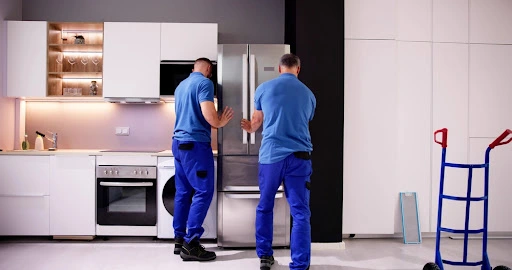The Ultimate Guide to Refrigerators Maintenance and Repair Tips

Refrigerators are essential appliances in our homes, ensuring our food stays fresh and our beverages remain cold. However, like any other appliance, they can encounter problems over time. This comprehensive guide will explore everything you need to know about refrigerators, from their various types to essential maintenance and refrigerator repair tips.
Understanding Refrigerators:
Before delving into refrigerator repair, let’s start with the basics of how refrigerators work. Understanding their inner workings can help you troubleshoot issues more effectively.
A refrigerator operates on a simple principle, it removes heat from the inside and releases it outside. This process is possible through refrigerant, compressor, condenser, and evaporator coils. By removing heat, it keeps the contents inside cool and fresh.
Types of Refrigerators:
Refrigerators come in various types, each with its own set of features and advantages:
- Top-Freezer Refrigerators: These are the most traditional type, with a freezer compartment on the top and a refrigerator section below.
- Bottom-Freezer Refrigerators: These models have the freezer at the bottom, making it easier to access fresh foods.
- Side-by-Side Refrigerators: These units have the freezer on one side and the refrigerator on the other, offering a balanced layout.
- French Door Refrigerators: Known for their double doors and bottom freezer drawer, these refrigerators are popular for their spacious design.
- Compact Refrigerators: Ideal for small spaces, like dorm rooms or offices, these mini-fridges offer basic cooling capabilities.
- Smart Refrigerators: Modern refrigerators come equipped with smart technology, allowing you to control settings through your smartphone.
Choosing the Right Refrigerator:
When selecting a refrigerator, consider size, capacity, energy efficiency, and additional features like water and ice dispensers. Measure the available space in your kitchen to ensure a proper fit.
Refrigerator Maintenance Tips:
Regular maintenance can extend the life of your refrigerator and prevent common problems. Here’s how to keep it running smoothly:
- Temperature Settings: Set the temperature to 37°F (3°C) for the refrigerator and 0°F (-18°C) for the freezer to keep food safe.
- Clean the Condenser Coils: Dust and dirt can accumulate on the coils, reducing efficiency. Clean them every six months.
- Check the Door Seals: Ensure that the door seals are airtight. Replace any damaged seals to maintain proper insulation.
- Empty and Defrost the Freezer: Ice buildup can reduce freezer efficiency. Defrost it periodically.
- Clean the Interior: Remove expired food regularly and wipe down the interior with a mild detergent.
Common Refrigerator Problems:
Despite regular maintenance, you may encounter issues with your refrigerator. Here are some common problems and how to address them:
- Strange Noises: Buzzing or rattling noises may indicate a faulty fan or compressor. Consult a technician for diagnosis and repair.
- Leaking Water: Check for clogged drain lines or damaged seals. A technician can fix more complex issues like a leaking refrigerant.
- Temperature Fluctuations: Inconsistent temperatures may result from a malfunctioning thermostat or condenser coils. Professional help may be required.
DIY Refrigerator Repairs:
Some refrigerator issues can be resolved on your own:
- Replacing a Damaged Seal: If the door seal is torn or damaged, you can order a replacement and install it easily.
- Unclogging the Drain Line: If you notice water pooling in the fridge, a clogged drain line could be the culprit. Gently clean the clog to restore proper drainage.
When to Call a Professional:
For more complex issues, it’s advisable to consult a professional technician. Call Faj Technical Services for help if you encounter problems like compressor failures, refrigerant leaks, or electrical issues.
Extending Your Refrigerator’s Lifespan:
To ensure your refrigerator lasts as long as possible, invest in regular maintenance and address problems promptly. Consider it an investment in keeping your food fresh and your kitchen running smoothly.
Conclusion
Refrigerators are indispensable in our daily lives, and understanding how they work and how to maintain them is crucial. With the right knowledge and care, you can extend the life of your refrigerator and troubleshoot common issues effectively. Remember to follow safety precautions and consult a professional for complex repairs. A well-maintained refrigerator will keep your food fresh and your kitchen running smoothly for years.
